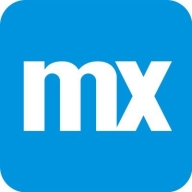

Find out what your peers are saying about Microsoft, Amazon Web Services (AWS), Red Hat and others in PaaS Clouds.
| Product | Market Share (%) |
|---|---|
| IBM Public Cloud | 3.2% |
| Microsoft Azure | 15.2% |
| Amazon AWS | 13.2% |
| Other | 68.4% |
| Product | Market Share (%) |
|---|---|
| Mendix | 4.2% |
| Microsoft Power Apps | 8.3% |
| Oracle Application Express (APEX) | 5.2% |
| Other | 82.3% |


| Company Size | Count |
|---|---|
| Small Business | 13 |
| Midsize Enterprise | 2 |
| Large Enterprise | 4 |
| Company Size | Count |
|---|---|
| Small Business | 28 |
| Midsize Enterprise | 7 |
| Large Enterprise | 25 |
IBM Cloud is a full-stack cloud platform that spans public, private and hybrid environments. Build with a robust suite of advanced data and AI tools, and draw on deep industry expertise to help you on your journey to the cloud.
Mendix is a low-code application development platform that helps your organization accelerate its application development lifecycle. The solution is designed to enable you to create software faster by abstracting and automating the development process for better business outcomes at speed and scale. Mendix has many key capabilities, including a tailored IDE for every developer, built-in collaboration tools for team development, feedback management, agile project management, the ability to build a truly responsive design across devices, and much more.
Mendix Features
Mendix has many valuable key features. Some of the most useful ones include:
Mendix Benefits
There are many benefits to implementing Mendix. Some of the biggest advantages the solution offers include:
Reviews from Real Users
Below are some reviews and helpful feedback written by PeerSpot users currently using the Mendix solution.
PeerSpot user Somnath G., Solution Architect and LowCode Practice Lead at a tech services company, says, "What I found most valuable in Mendix is that it's very much suitable for mobile apps such as native Android or IOS supported mobile apps. The multiple features of the platform are very, very attractive and very popular. Mendix has technical features such as microflows and nanoflows. You can also access data models in the platform. These are the features that are very, very strong in Mendix. I got my hands dirty on other low-code platforms, but I have not seen such strong features in them compared to the microflows, nanoflows, and data model access that are in Mendix, including creating and integration. The platform has out-of-the-box adapters or out-of-the-box-connectors that you can integrate with different interface applications such as SAP, Salesforce, Oracle EBS, etc."
Sameer V., Consulting Manager at Deloitte, mentions, “Their native mobile capability is very good. In general, the way they launch the product has been great. Their product launching strategy is far better than any other platform. I work in OutSystems and Mendix. They tend to be more on the legacy side, OutSystems. With this solution, the product launching strategy is very, very agile. I really like when they roll out their updates, which are very, very frequent.”
Robert B., Solutions Architect at a computer software company, explains, The solution is just very quick and responsive. The initial setup is very straightforward, and those implementing the product do not have to be very technologically advanced in order to manage the process.”
We monitor all PaaS Clouds reviews to prevent fraudulent reviews and keep review quality high. We do not post reviews by company employees or direct competitors. We validate each review for authenticity via cross-reference with LinkedIn, and personal follow-up with the reviewer when necessary.